【Shanghai Alumni Lecture】 New International Order from the Perspectives of China and Europe
On June 6th, the Alumni of Sciences Po in Shanghai organized a lecture on the topic "New International Order: Evolution and Prospects from Chinese and European Perspectives".
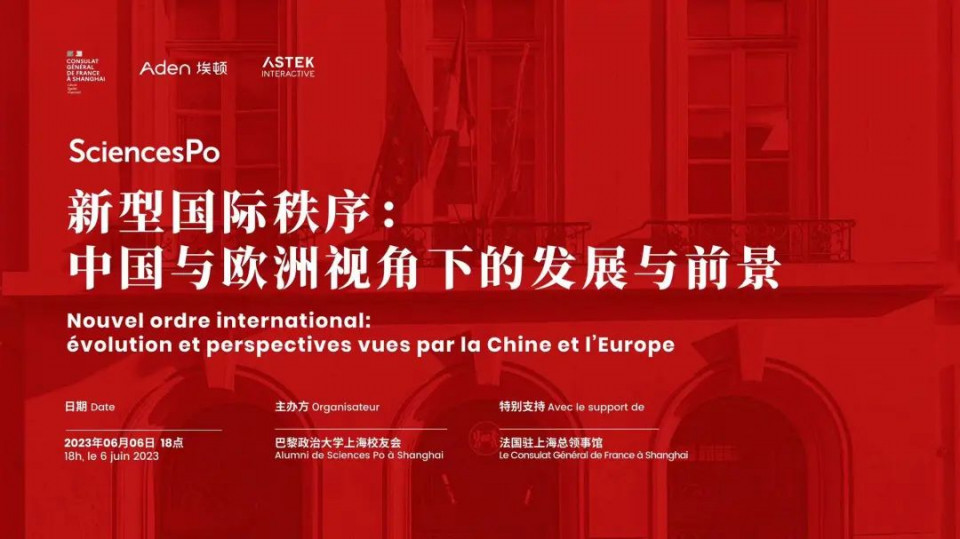
For a better discussion and understanding of the topic, we invited Mr. Joan Valadou, the Consul General of France in Shanghai; Ms. Marie-Claire Swärd Capra, the Consul General of Sweden in Shanghai; Professor Bertrand Badie, a renowned French political scientist and honorary professor at Sciences Po Paris; Professor Ji Zhang, Vice Dean of the School of International Relations and Public Affairs at Fudan University and Director of the Center for People-to-People Exchange Studies, and the Associate Director of the Center for French Studies; Ms. Huawei Zong, a Ph.D. candidate in International Relations at Peking University; and Mr. Yaning Zhang, junior research assistant at the School of International Relations and Public Affairs at Fudan University (SIRPA).
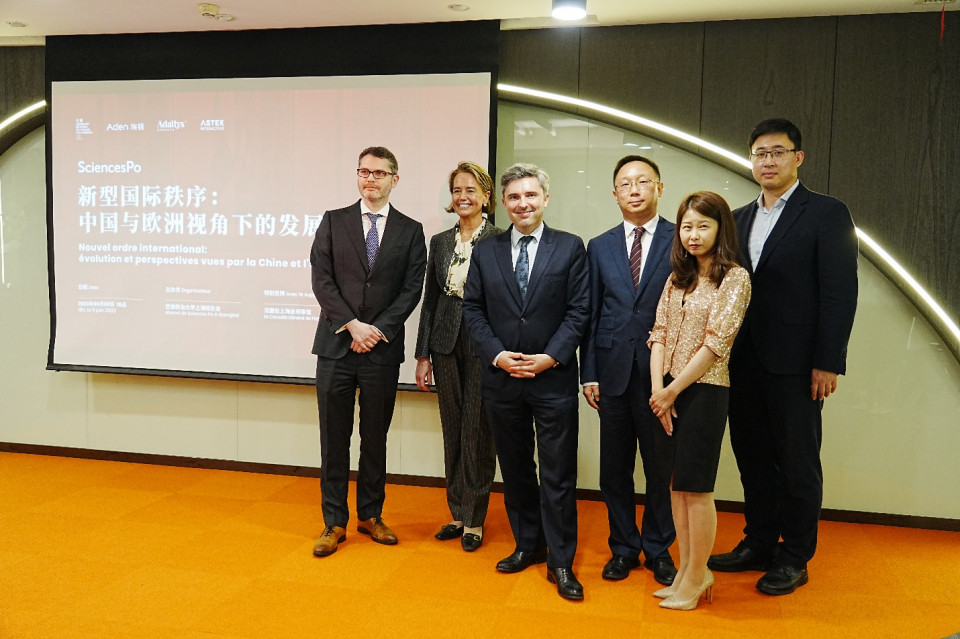
In the opening and concluding speech, Consul General Joan Valadou emphasized the importance of China-Europe cooperation, particularly in establishing a more inclusive form of global governance and maintaining peace. He highlighted the tremendous potential of China-Europe cooperation in these aspects.
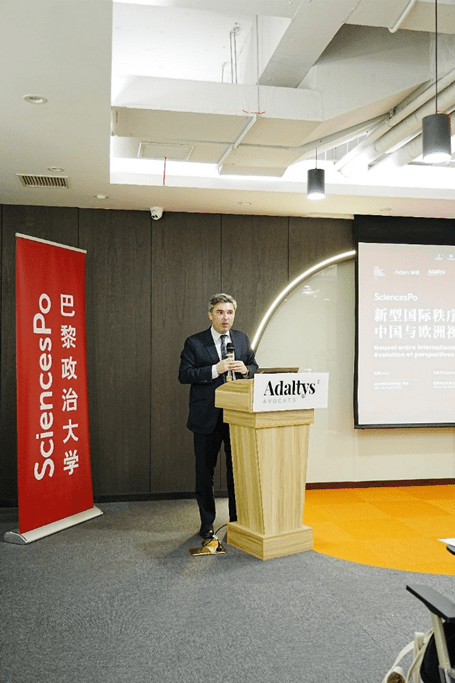
In the keynote speech, Professor Bertrand Badie, a renowned French political scientist and honorary professor at Sciences Po Paris, shared his views on "What is a post-bipolar international order: toward a new meaning of power?" His speech revolved around the theme of transformation: "we are born in one world and pass away in another". He argued that the era of geopolitics has come to an end, and the world is undergoing significant movement and transformation, especially in the process of globalization where competition is replaced by interdependence, and national security gives way to global security. The accelerated changes in the world require the reconstruction of a global order based on principles of social interaction, global security, and humanitarianism.
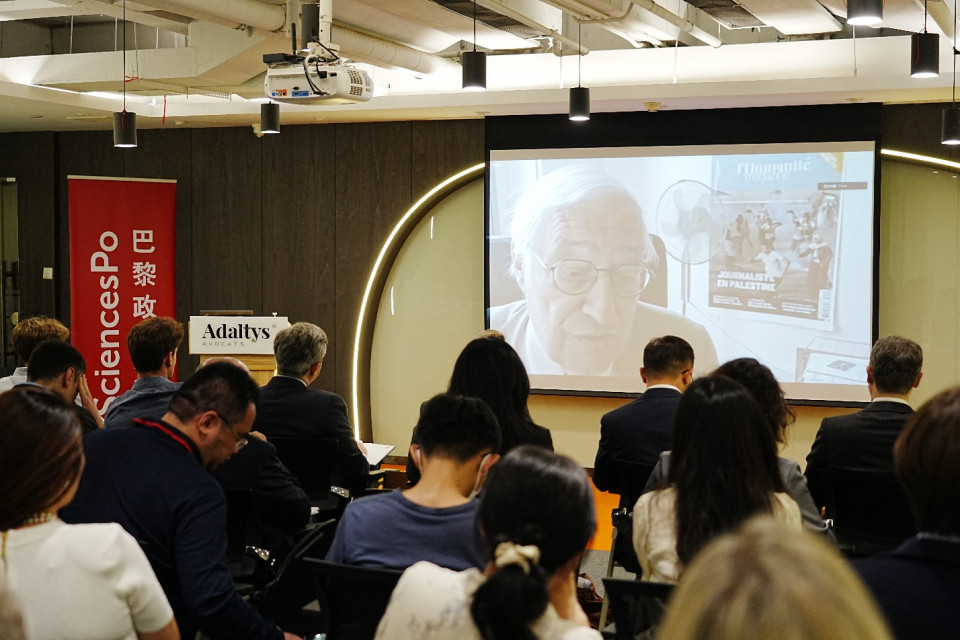
Professor Ji Zhang, Vice Dean of the School of International Relations and Public Affairs at Fudan University and Director of the Center for People-to-People Exchange Studies, provided the Chinese perspective on the international order with his speech titled "New Order or Old Order: Alternatives to Bipolar Order." According to Professor Zhang, China perceives the world as a global community with a shared future. He mentioned five principles of Chinese-style modernization: massification, common prosperity, coordinated development of material and spiritual civilization, harmonious coexistence between humans and nature, and peaceful development. He stated that China's view of the global order is based on common global governance rather than sacrificing the interests of other countries. With different histories, values, and viewpoints, each country should seek a common international order based on multilateralism, mutual learning, and inclusiveness. He insisted that China sees the world as a community and promotes cooperation rather than confrontation.
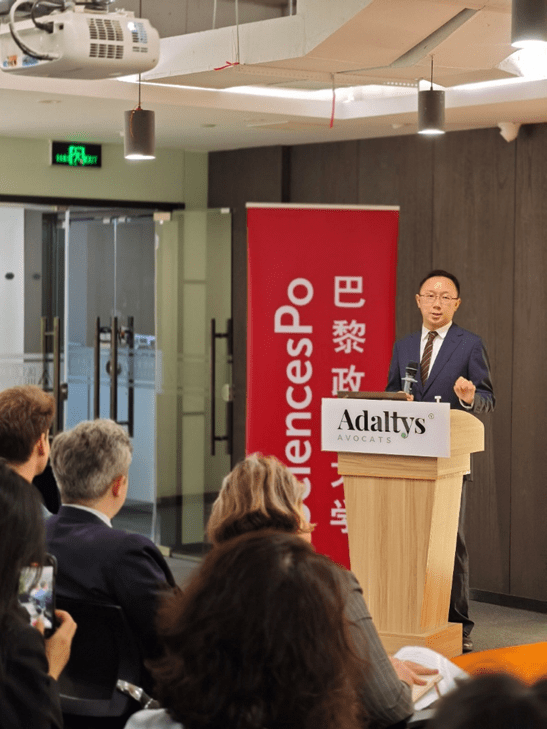
Lastly, Ms. Huawei Zong, a Ph.D. candidate in International Relations at Peking University, elaborated on the importance of accepting alterity in an unfamiliar world. She shared her experience of translating Professor Badie's book The World is No Longer Just 'Us' and further emphasized the significance of global diversity and embracing alterity as a way to overcome conflicts and confrontations. She believed that the new global order should be built on the foundation of alterity and diversity.
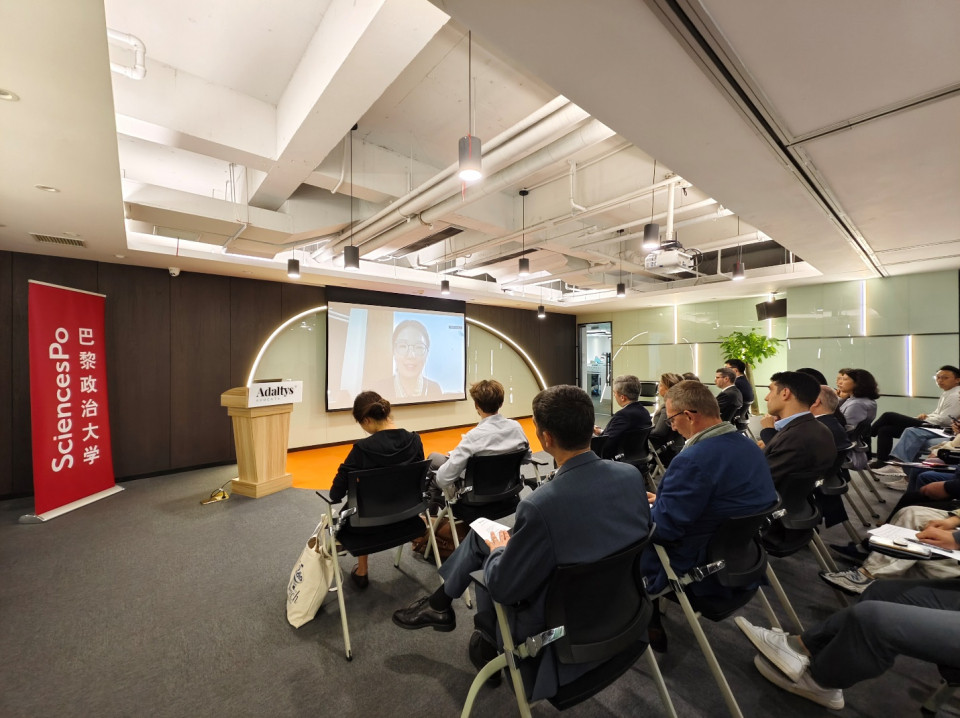
Following the speeches was a panel discussion. Moderator Yaning Zhang asked questions to the participating guests regarding how major powers can promote mutual respect and adaptation, as well as how to foster inclusive multilateral cooperation in an increasingly intense strategic competition environment. All four panelists (Ms. Marie-Claire Swärd Capra, Professor Bertrand Badie, Professor Ji Zhang, and Ms. Huawei Zong) expressed the importance of multilateral cooperation, interdependence, mutual understanding, and moral solidarity in addressing the issues. Additionally, they all acknowledged the necessity to create a new international order.
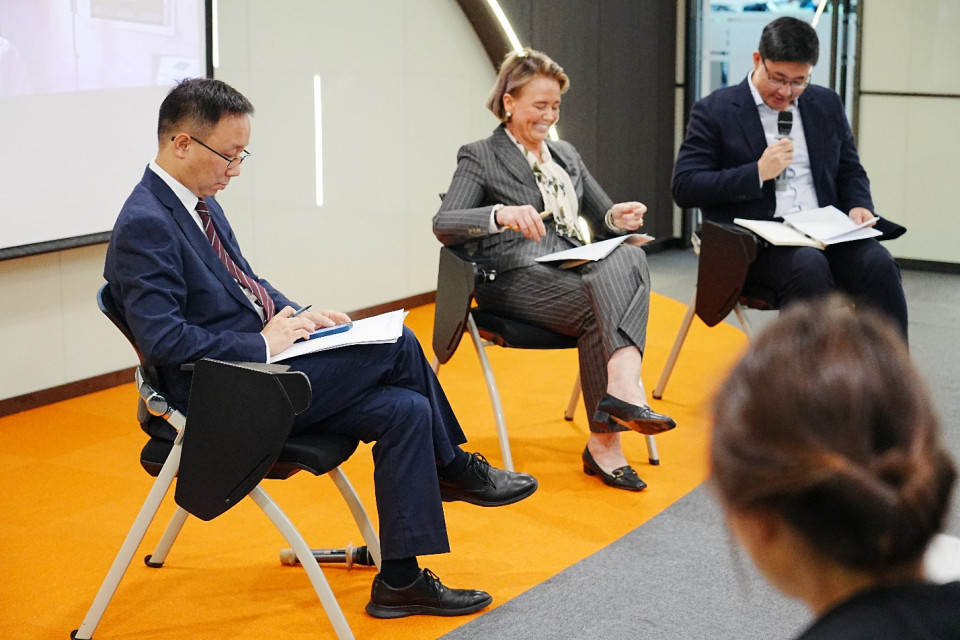
The preparation and organization of the lecture involved the participation of nearly ten alumni. Thank you for everybody’s hard work.
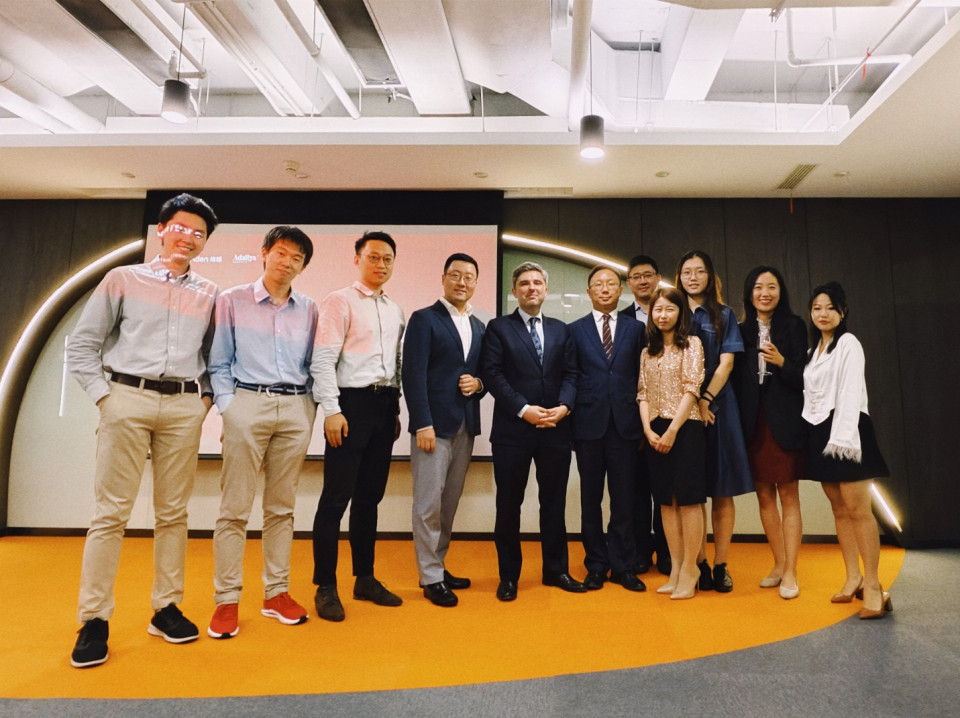
SciencePo Alumni in Shanghai

Commentaires0
Vous n'avez pas les droits pour lire ou ajouter un commentaire.
Articles suggérés



